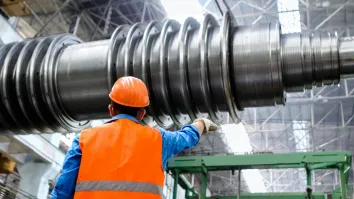
China’s renewable energy dominance puts pressure on global transition
Beijing continues to outpace the rest of the world.
Whilst global renewable energy investments have increased from $248b in 2014 to $745b in 2023, China remained to be a leader in the transition to clean energy, pushing other countries to follow its lead and accelerate their own efforts.
According to Rystad Energy, China's cumulative spending on solar and wind energy alone has significantly surpassed the rest of the world, increasing from $150b in 2020 to nearly $400b in 2023. However, this lead is expected to shrink by the end of 2024 and may disappear entirely by 2027 as other countries ramp up their spending.
Beijing has also outpaced Europe and the US in per-capita renewable energy investment. From 2020 to 2024, China has made significant strides in building renewable energy infrastructure relative to its population, a more challenging task compared to the less populous US and Europe.
“This competitive pressure has also driven domestic cleantech manufacturing industries worldwide to increase their output,” said Lars Nitter Havro, head of Energy Macro at Rystad Energy. “The results are clear: as China ramped up its cleantech investments, the rest of the world followed in quick succession”
Rystad Energy attributed China's dominance in cleantech, especially solar and batteries, to its manufacturing capabilities as it controls 80% of the global solar photovoltaic supply chain. However, the rest of the world, led by the US, may catch up by 2027.
The US and India are aggressively investing in cell manufacturing and module assembly plants, aiming to achieve self-sufficiency by 2026. However, their production costs remain significantly higher, making Chinese modules cheaper at around $0.10 per watt, versus US prices at around $0.30 per watt.
“Although using Chinese components can speed up the deployment of clean technologies and help meet climate goals, it raises concerns about over-reliance on a single supplier, with fears that this dependence could expose countries to potential risks from geopolitical tensions, trade restrictions, or supply chain disruptions,” Rystad Energy said.
“Consequently, nations must navigate the balance of ensuring energy security and affordability whilst safeguarding long-term strategic interests,” it added.

















 Advertise
Advertise







